'It's like a big hug.' Community, friends help Lakeland woman find gratitude amid ALS losses
- Oops!Something went wrong.Please try again later.
LAKELAND — The record of an adventurous life is on display throughout Laura Pinner’s home.
There is what a friend calls “the shrine,” an assemblage of photos on a wall in the front room, depicting Pinner as a stunning young woman wearing a gown and a bathing suit in beauty pageants.
In her bedroom, a sash slung over the frame of a mirror reads “Miss Marion County.” A shopping bag hanging from a doorknob bears the message “I(Heart)LA,” a vestige of Pinner’s seven years spent in Los Angeles as a model and actress.

Pinner’s cell phone contains photos of her with the likes of Matthew McConoughey and Vince Vaughn.
Those tangible mementos, though, fail to hint at the rich repository of five decades stored in Pinner’s mind and soul. Now facing perhaps the cruelest of all diseases, she draws succor from a trove of relatives and friends, most of them not famous.
“It’s almost miraculous, in a way, when you go through something that's so incredibly frightening, and the goodness of community and friends hems you in, like a bird,” Pinner said. “It's like a big hug. … I mean, if you have two friends, you're blessed. And I’m fortunate to have more than that.”

Pinner, 52, will spend this Thanksgiving with family members in the South Lakeland home she shares with her parents, Bill and Frances Pinner, as she has in most previous years. The circumstances, however, are now vastly different.
Instead of walking perhaps 10 steps from her room to the dining room. Pinner requires help to slide out of her hospital bed and into the black wheelchair she affectionately calls “Darth Vader.” She controls the power chair by moving a knob with her right hand, the one that still follows her brain’s commands.
Pinner was diagnosed in March with amyotrophic lateral sclerosis, or ALS, a disease that causes the progressive loss of muscle control and bodily function. She was still driving less than a year ago, but she has since lost the ability to walk or use her left arm.
There is no cure for ALS, and treatments have shown limited effectiveness.
It would be understandable if Pinner felt she had no reason to be thankful this year.
“I'm totally, 1,000% thankful,” she said. “My cup runneth over.”
Thinking ahead last week to Thanksgiving, she said: “Oh, I will be delighted to be with my family. And I'm learning to take it moment by moment. And to be thankful for the smallest victories and glories in life. I feel like George Bailey sometimes” — the protagonist of the movie “It’s A Wonderful Life." “For me, it's a wonderful life.”
COVID by the numbers: Polk's COVID infections dip slightly; vaccinations flatten
'Nobody's neutral': Polk County parents' thoughts on kids' COVID-19 vaccines vary widely
Memories of L.A.
Pinner, a Lakeland native, is a preternatural extrovert and entertainer. She recalled tap dancing for her family at age 4 and joining with a friend, Wendy Profit, to conjure dance productions for fellow students at Medulla Elementary School. She became a cheerleader at Kathleen High School.
Remembering their service: World War II memories remain clear for 100- and 102-year-old Lakeland survivors of 'Greatest Generation'
After graduating from the University of Florida — where her older brother, Pat, played football — Pinner returned to Lakeland and belatedly entered the realm of beauty pageants, frequently winning Miss Congeniality titles.
A friend advised Pinner to pursue acting in commercials. While doing that, she landed a role as an extra in “The Waterboy,” an Adam Sandler movie shot partly in Lakeland. At the urging of a woman she met on that project, Pinner took the bold step of moving to Los Angeles in 1999.
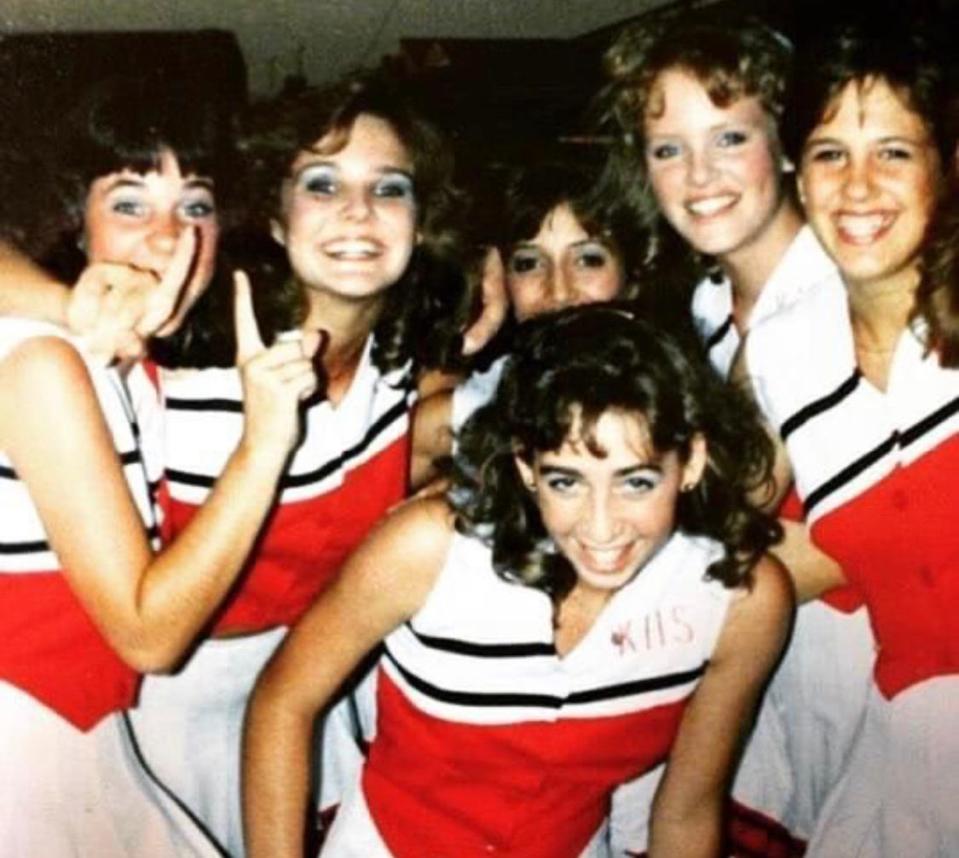
Pinner, whose headshots from the era show a willowy blonde with a wholesome aura, became a traveling makeup artist for Estee Lauder, assigned to chic stores in Beverly Hills, and began meeting Hollywood’s glitterati. She auditioned for “Melrose Place” and became a union extra, working with such directors as Cameron Crowe and James Brooks.
She served as a stand-in for Téa Leoni, appeared in an episode of the CBS show "Standing Still" and had screen appearances in such movies as “Wedding Crashers” and "Constantine." She worked with Keanu Reeves and had only one degree of separation from Kevin Bacon when they shared a training center.
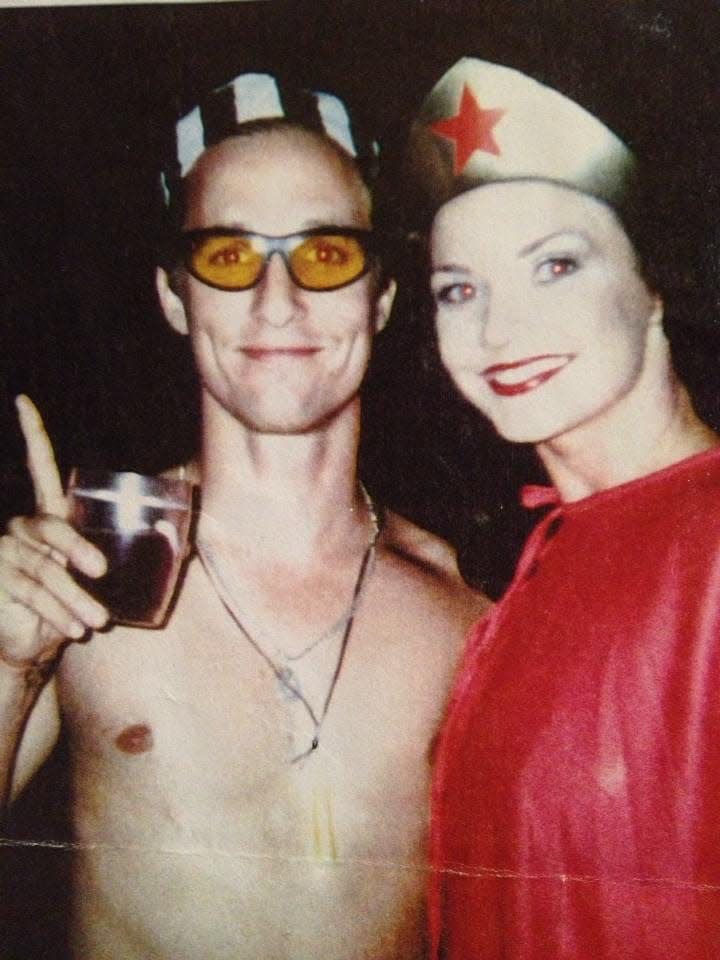
Pinner entered a new phase in the early 2000s as a model at auto shows, and after seven years in L.A. she returned to Lakeland. Before long, she became a model for HSN (formerly Home Shopping Network), based in St. Petersburg, modeled clothing and makeup for its TV productions.
A family's tragedy: Loss of both parents illustrates how COVID-19 has wracked Latinos in Polk County
Coming back: Prominent pastor Jay Dennis returning to pulpit at new church
Some of the first indications that Pinner’s body was starting to fail came on the set of HSN shoots. Having trouble with her balance, she switched from high heels to flats. She began struggling with buttons and snaps on costumes and needed help from the crew.
“I was in such denial about it because, I mean, I've never had anything like this before,” she said. “It's hard to believe that it's happening to you.”
Pinner began feeling wave-like pulses in certain muscles — fasciculations, or disruptions of the signals between nerves and muscles that occur with ALS. Walks around Lake Hollingsworth with friends became slower and then stopped altogether when her left foot went numb. And she began having falls, which she at first attributed to menopause.
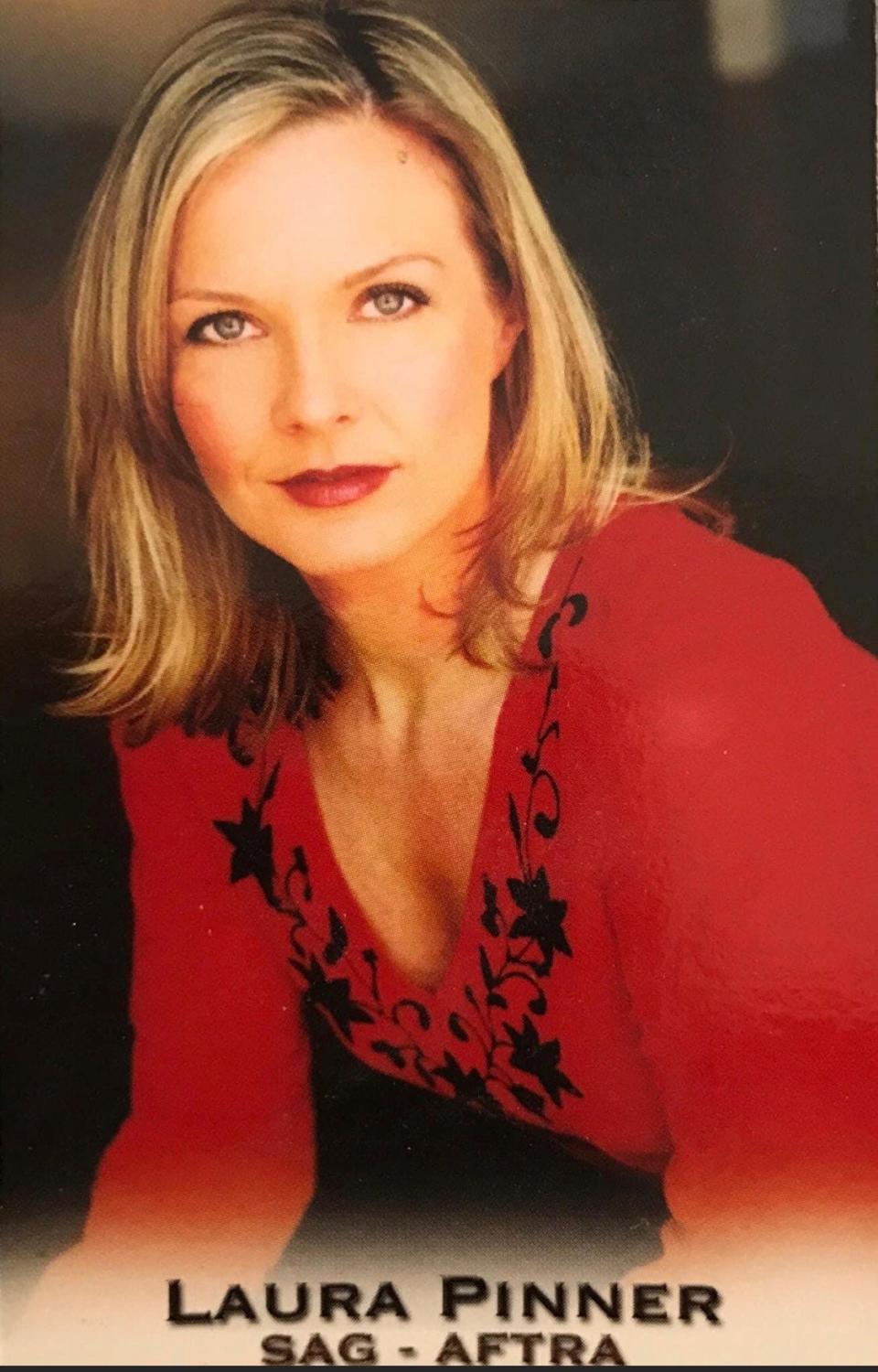
While roller skating at Skate World in Lakeland, she toppled backward and smacked her head onto the pavement. A first doctor focused on her resulting spinal injury, but Pinner later went to see a neurologist at the University of South Florida. In March, testing confirmed that she had ALS, previously called Lou Gehrig’s Disease.
Difficulties and gifts
Pinner said she sobbed upon getting the diagnosis. Eight months later, she is still grappling with the harsh reality while clinging to her Christian faith and the love of her family and many friends.
She used the phrase “both/and” in describing her outlook.
“This whole disease thing — it’s awful and beautiful, all at the same time,” Pinner said. “ALS is not fun. It has robbed me of walking and working, but yet there are gifts within it.”
What gifts?
“It's a gift because it really makes me treasure every morsel of time that I have with my family, my friends,” she said. “I look at nature differently. I covet more time on Earth. It's given me a perspective of just knowing there has to be something bigger and greater beyond for all of us.”
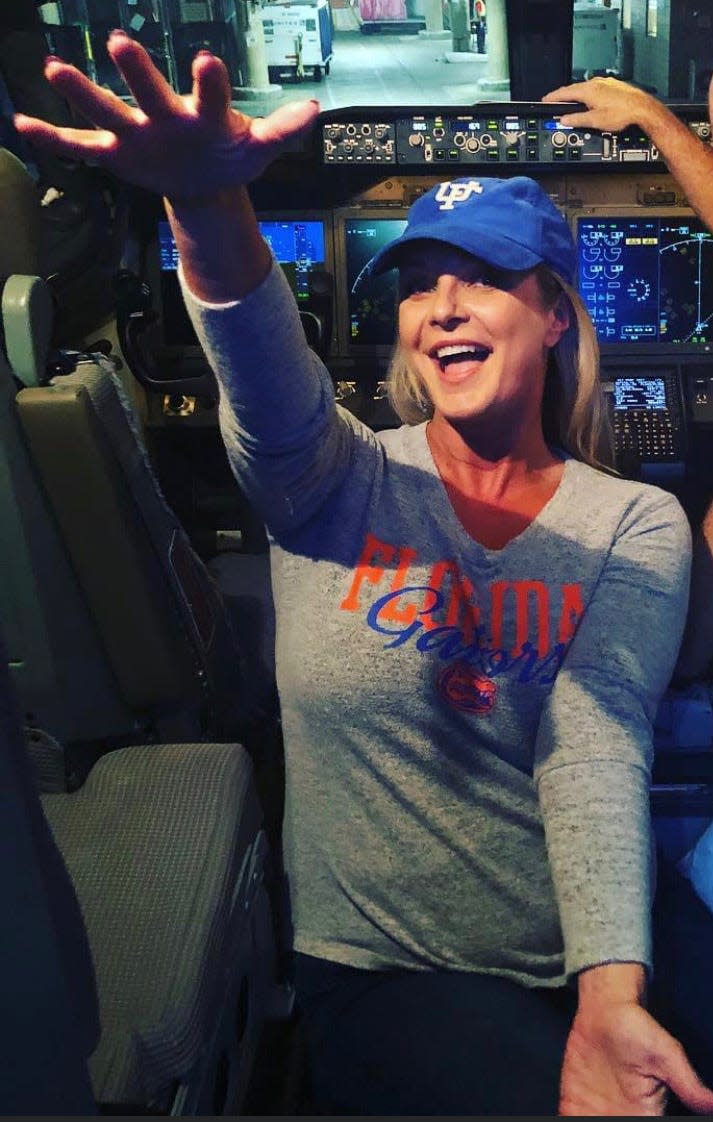
A close friend, Stan Fenton of Bartow, said ALS has taught Pinner to savor life’s small satisfactions.
“She was always on the go — always, always, always,” Fenton said. “So it's slowed her down, and … it's kind of a double-edged sword. But the slowdown in her everyday life has, I think, given her a greater appreciation for all that. When we're all healthy and all 100% and all full speed ahead, we take things for granted — our mobility, our independence, the ability to stand up and go get a drink of water, or go to the bathroom. We take all that for granted. So I think that going through this has definitely allowed her to come to appreciate the moment more.”
Artistic heart beats: As the end of his life nears, Lakeland's Rick Olivo still creates
Pinner’s hospital bed sits along a window offering a view of the back yard: a fringe of azaleas and beyond them a mature oak tree and green curtain of vegetation. Pinner’s daytime caregiver, Rhonda Batts, is a frequent presence in the room, attending to her needs and using a body lift or gait belt to transfer Pinner into her wheelchair.
She also has a caregiver who stays overnight.
A cell phone plugged into a charger sits on the bed near Pinner’s right hand. She uses voice commands to send texts and emails and search the Internet.
A friend, Jennie Ellis of Plant City, transformed the room, last occupied by Pinner’s brother Pat, from a 1970s artifact with plaid, brown wallpaper into a pleasant space — pale green walls displaying artwork Ellis fashions out of thrift store brooches.
While Ellis has known Pinner since high school, their friendship has grown almost sisterly in the past year.
“When she got diagnosed, what my takeaway was, instead of turning bitter towards the people whose bodies are not failing, she began to see her friends and the people around her in such a more loving light,” Ellis said. “It was just the thanksgiving in that (that) was so powerful to me, I started — I was sobbing about it. I went home and was thinking about it. And I just thought, ‘How could somebody not turn bitter towards other people?’ ”
A flag to remember Daniel: D.C. memorial symbolizes 700,000 lives claimed by COVID-19
Ellis said she wants to preserve Pinner’s legacy, keeping notes of their discussions or recording her impressions later. She shared a journal entry from soon after Pinner was diagnosed: “She mentioned noticing the deep beauty in her friends today. She said they are radiant and bright. They are illuminated; it’s like they are angels.”
'Courage and dignity'
Fenton expressed admiration for Pinner’s response to ALS.
“She's very fortunate to have both a strong faith and a good support network,” he said. “But, yeah, it's been difficult watching it take her independence, or her mobility. She’s always been a very strong and independent woman. And I know that this puts her in a spot of vulnerability. And I mean, the outcome is as awful; the end result is awful. And I think she faces every day with courage and dignity and beauty. And it's been kind of inspiring to see someone face adversity and face it headlong and positive, as she has.”
Ellis said Pinner sometimes seems to forget about the ALS.
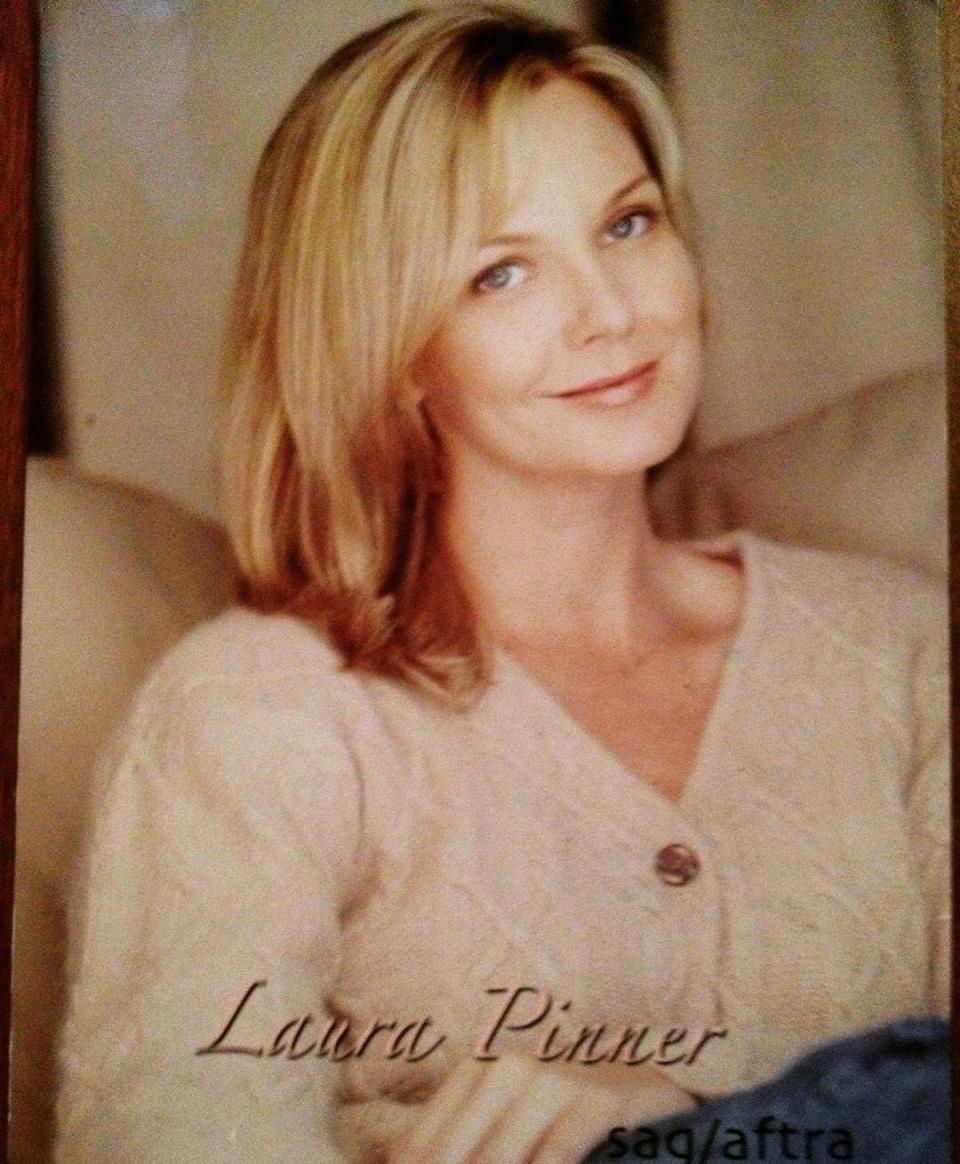
“She got on the phone with one of my friends on FaceTime, and my friend teared up,” Ellis said. “She was caught off guard because (Pinner) said, ‘You know, I don't focus on it. So sometimes I don't remember I have it.’ I thought that was pretty powerful. She just doesn't focus on being a victim, ever. … I would like to think that I would be like her, but I’m not sure I would.”
Pinner makes it clear that she is not “a Pollyanna,” or mindless optimist. She cried a few times during a conversation at her home and admitted to moments of fear and anguish.
“Yeah, I cry a lot, but that's OK because it’s healing to cry,” she said.
As she began to speak about “grief,” her controlled demeanor gave way to a spasm of sorrow.
“A lot of grief,” she said through tears. “The things we take for granted.”
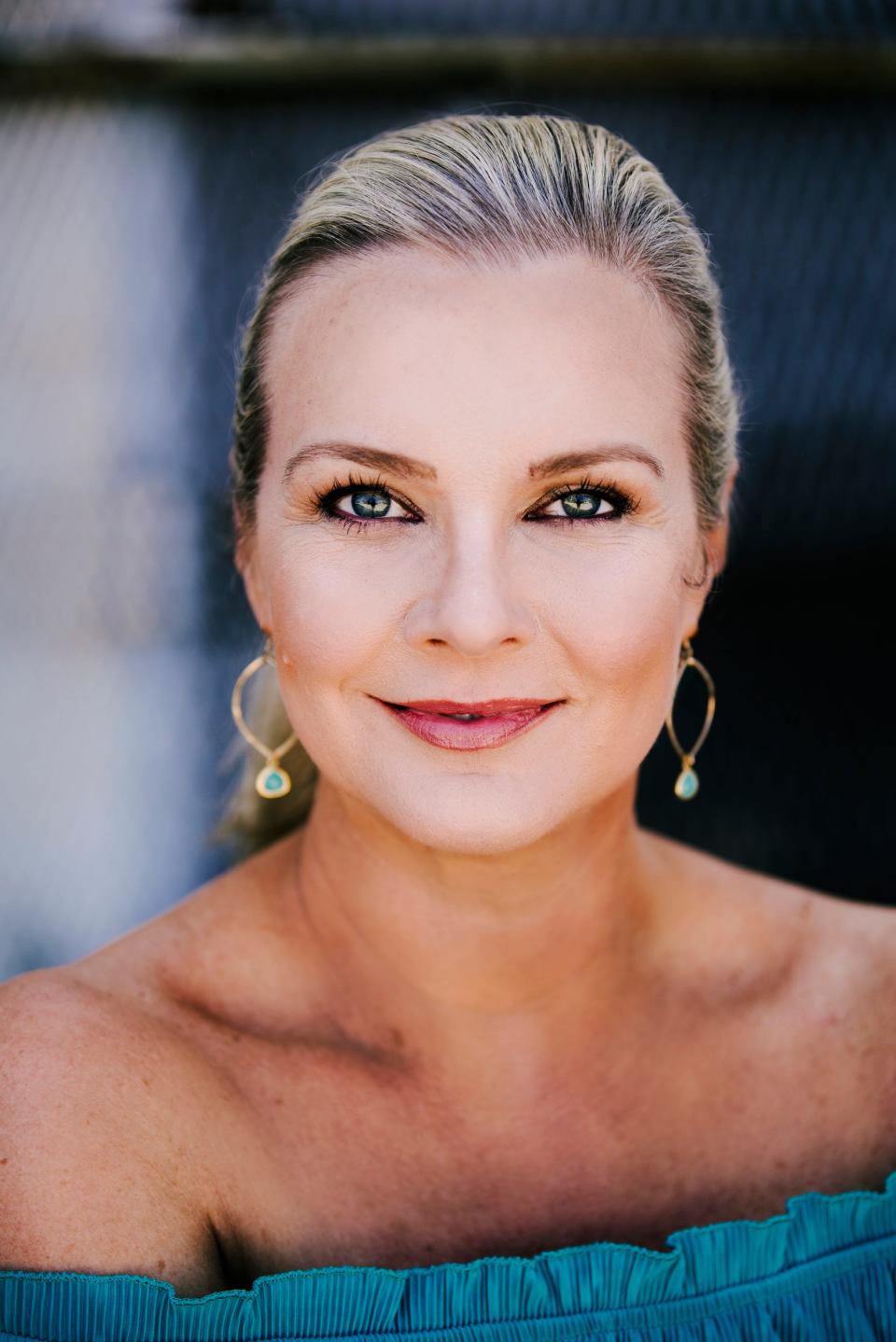
Soon after her diagnosis, Pinner received a call from Rev. David McEntire of First United Methodist Church in Lakeland. Though she attends another church, Pinner has long known McEntire, and her older sister, June Edwards, is a superintendent with the denomination.
“And he gave me just such peace,” Pinner said. “He emphatically told me that, ‘There is hope, Laura. There is hope.’ ”
'I just can't believe it': Four family members die in September, three from COVID-19
Pinner said she is trying to be faithful and to recognize all the love and caring that she has received. She draws comfort from a friend’s description of a blissful, near-death experience.
At one point, Pinner suggested that she expects to walk again. She said she considered entering a clinic in Miami, but it costs $3,000 a week and doesn’t accept insurance.
“When traditional medicine doesn't work and they don't have a cure, you will search high and low for something to give you hope,” Pinner said. “That's just the darn truth.”
Focusing on present
Pinner acknowledged the likely progression of the disease, which eventually takes away the ability to talk. ALS can also affect thinking and brain function, and Pinner sometimes struggles for memories, saying her head feels foggy.
But she also recalls precise details of stories from her L.A. years, and she focuses on the powers that remain to her.
“I can still use this (right) side of my body, which is really good,” she said. “I just can't — I can't think about it. I have to live in the present moment. That's what I'm practicing. That's my practice, to live in the present moment.”

She then quoted John Lennon: “ ‘In the end, everything will be OK. If it's not OK, it's not the end.’ Isn’t that awesome?”
A friend told Pinner about Team Gleason, a nonprofit created by Steve Gleason, a former pro football player diagnosed with ALS in 2011. Through the foundation, Pinner has “voice banked” herself, creating a synthesized version of her voice for later use through a speech-generating device, like the one the late astrophysicist Stephen Hawking employed.
'Glad it’s coming back': Lakeland orchestra returns with new name, varying venues
Pinner has found a new network of friends through online ALS support groups. She has become close with a woman in Bartow whose ALS has left her unable to speak.
Beyond its physical cruelties, ALS inflicts a heavy financial cost. Pinner must pay out of pocket for round-the-clock caregivers, and her disability payments will soon end. She wonders how those of lesser means cope with the need for care.
Pinner’s sister, Jennifer Pinner Whitehead, created a GoFundMe campaign to help cover her costs. As of Tuesday, it had raised nearly $50,000 toward a goal of $100,000, but Pinner has already spent much of that.
“The outpouring of the community in Lakeland has been so incredible,” Pinner said. “It's beyond heartwarming. It's kneecapping, in a way, how kind people have been. And how difficult sometimes it is to perceive that. Sometimes I'm, like, ‘I’m really not that worthy.’ ”
HOW TO HELP
A GoFundMe campaign has been created to help cover Laura Pinner's medical expenses. The campaign can be found by searching for her name on www.gofundme.com
Gary White can be reached at gary.white@theledger.com or 863-802-7518. Follow on Twitter @garywhite13.
This article originally appeared on The Ledger: Laura Pinner finds gratitude amid losses from ALS in Lakeland home

